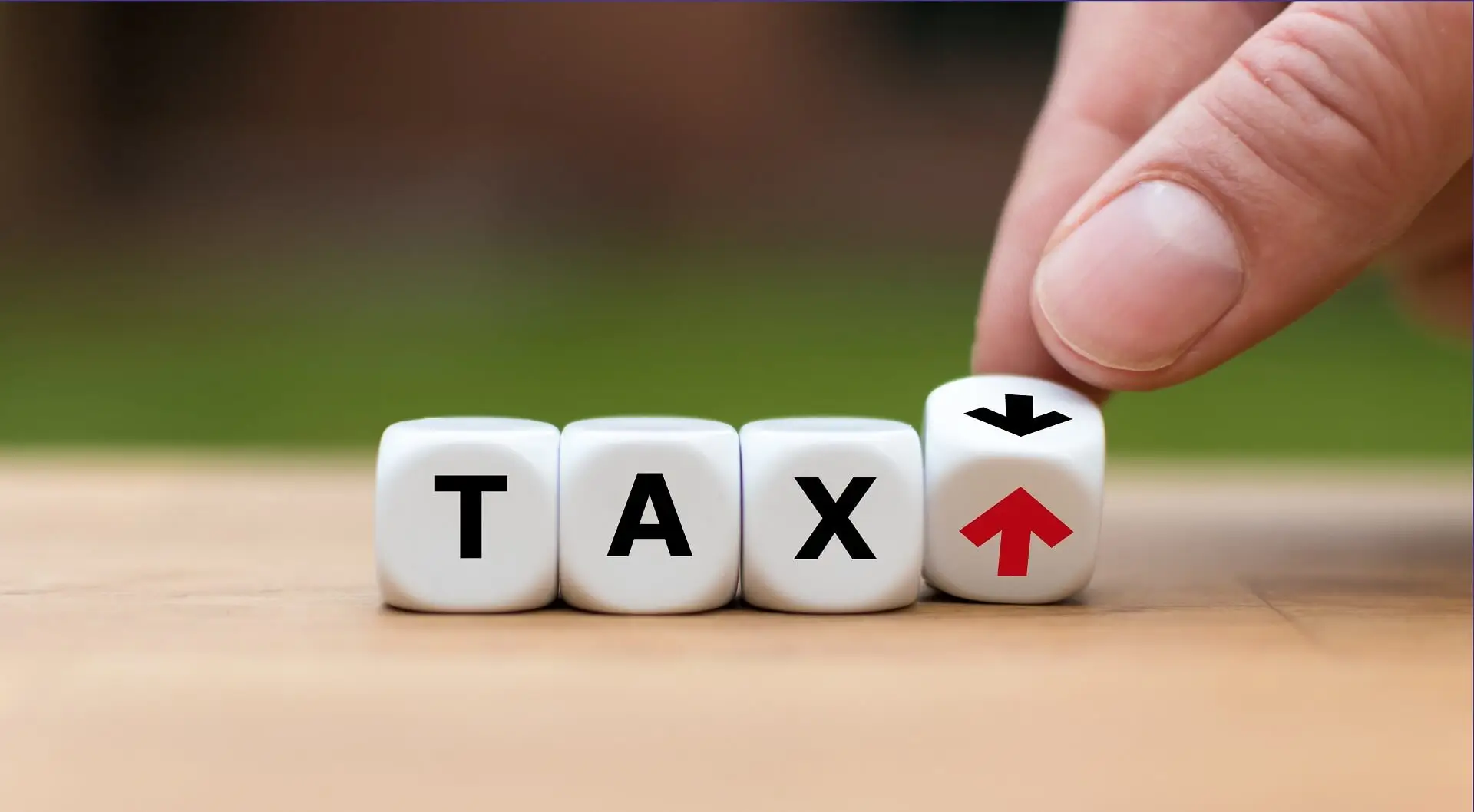Dernière mise à jour : décembre 2025 | Publié initialement en juin 2025. Principaux changements : Les mesures temporaires (frais d’enregistrement 3.5%, crédit d’impôt investisseur de 20 000 €, taux d’imposition des plus-values majorés) ont pris fin le 30 juin 2025 ; la déduction 6% VEFA a pris fin le 30 septembre 2025 ; la taxe foncière permanente pour la résidence principale reste à 40 000 €/personne ; structures d’amortissement et de plus-values mises à jour.
L'optimisation fiscale des investissements immobiliers au Luxembourg offre des opportunités exceptionnelles pour se constituer un patrimoine et générer des revenus passifs. Le cadre fiscal avantageux du Grand-Duché propose de nombreuses déductions et incitations qui peuvent accroître significativement les rendements lorsqu'elles sont utilisées à bon escient. Comprendre ces stratégies est essentiel pour maximiser votre potentiel d'investissement en 2025.
Le marché immobilier luxembourgeois continue d'attirer les investisseurs grâce à sa stabilité, à une forte demande locative et à ses nombreux avantages. Si plusieurs mesures temporaires ont pris fin mi-2025, les améliorations permanentes et les programmes en cours continuent d'offrir des avantages considérables aux investissements bien structurés.
Comprendre le cadre d'optimisation fiscale du Luxembourg
Le système luxembourgeois offre des avantages considérables aux investisseurs immobiliers grâce à divers mécanismes de déduction et abattements spécifiques. Le principe fondamental est que les dépenses d'investissement légitimes peuvent être déduites des revenus locatifs, réduisant ainsi la charge globale tout en encourageant le développement et l'entretien des biens immobiliers.
Les revenus locatifs suivent une structure simple : le revenu locatif brut est soumis à l’impôt sur le revenu des personnes physiques selon des barèmes progressifs. Toutefois, grâce à de nombreuses déductions, les taux effectifs sont souvent nettement inférieurs pour les portefeuilles bien gérés.
Pour les investisseurs détenant des biens immobiliers par le biais de sociétés, les taux d'imposition sur les sociétés s'appliquent, le taux standard global de la ville de Luxembourg étant de 23,871 TP3T en 2025. Le choix entre la propriété personnelle et la propriété par une société dépend de l'envergure de votre investissement, de votre approche à long terme et de vos objectifs financiers globaux.
Déductions d'intérêts hypothécaires pour investissement immobilier
L'un des principaux avantages pour les investisseurs réside dans la déductibilité intégrale des intérêts d'emprunt sur les biens locatifs. Contrairement aux résidences principales, soumises à des plafonds et des délais spécifiques, les intérêts d'emprunt sur les biens locatifs sont déductibles en totalité des revenus locatifs, sans aucune limitation.
Cette stratégie s'applique à tous les paiements d'intérêts sur les prêts contractés pour acquérir, construire ou rénover des biens locatifs. Pour les investisseurs qui ont recours au financement pour développer leurs portefeuilles, cet avantage peut se traduire par des économies substantielles, notamment dans le contexte actuel des taux d'intérêt au Luxembourg.
La déduction s'étend au-delà des intérêts hypothécaires de base et inclut les frais de financement connexes, tels que les frais de dossier de prêt, les frais d'enregistrement hypothécaire et les commissions bancaires. Ces dépenses, souvent négligées, peuvent représenter des déductions importantes l'année de l'acquisition.
Stratégies d'amortissement des biens immobiliers
L’amortissement représente l’un des outils les plus puissants pour réduire le revenu imposable provenant des biens locatifs. Le Luxembourg permet aux investisseurs d'amortir les bâtiments en fonction de leur date d'achèvement, ce qui leur permet de bénéficier de déductions annuelles pouvant compenser substantiellement les revenus locatifs.
Le taux d'amortissement standard pour les logements locatifs est de 2% par an. Cependant, un taux accéléré de 4% s'applique aux logements locatifs achevés il y a moins de cinq ans, dans la limite de deux logements par contribuable (quatre pour les couples imposés conjointement). Après cinq ans, le taux revient au taux standard de 2%. Cet amortissement est calculé sur la valeur du bâtiment hors terrain, car le terrain ne s'amortit pas.
La base d'amortissement comprend le prix d'acquisition moins la valeur du terrain, plus les coûts d'amélioration admissibles. Pour un bien immobilier d'une valeur de 500 000 € dont le bâtiment représente 80 % de la valeur totale, l'amortissement annuel pourrait atteindre 16 000 € pour une construction neuve admissible (taux de 41 TP3T) ou 8 000 € pour un bien locatif standard (taux de 21 TP3T).
Comprendre comment faire correctement évaluer la propriété La valorisation des éléments bâtis et la séparation des composantes foncières deviennent cruciales pour maximiser les avantages et garantir la conformité aux réglementations.
Déductions spéciales pour les achats sur plan
Le gouvernement luxembourgeois a instauré des déductions fiscales majorées pour les acquisitions de logements locatifs neufs sur plan (VEFA). Un abattement spécial sur la construction de 6% par an s'applique aux investissements éligibles signés entre le 1er janvier 2024 et le 30 septembre 2025, avec un plafond de 250 000 € par an pendant six ans.
Cette déduction spéciale (distincte de l'amortissement normal) offrait des avantages substantiels durant la période initiale de détention. Pour un investissement VEFA éligible, cette déduction pouvait générer des abattements annuels plafonnés à 250 000 €. Veuillez noter que cette mesure a pris fin pour les contrats signés après le 30 septembre 2025.
En outre, les biens locatifs bénéficiant du taux d’amortissement accéléré 4% ont droit à une allocation immobilière spéciale supplémentaire de 1% sur la base amortissable, plafonnée à 10 000 € par contribuable (doublée pour les déclarations conjointes).
Déductions des dépenses opérationnelles
Toutes les dépenses légitimes liées à la génération de revenus locatifs sont déductibles, ce qui permet une planification financière complète. Ces déductions comprennent :
Les frais de gestion comprennent les honoraires de gestion professionnelle, les dépenses publicitaires pour la recherche de locataires et les frais administratifs liés aux opérations locatives. Comprendre contrats de location et droits des locataires permet de garantir une documentation adéquate de ces dépenses.
Les frais d'entretien et de réparation sont entièrement déductibles lorsqu'ils permettent de préserver l'état du bien ou de le remettre dans son état d'origine. Cela comprend l'entretien courant, les réparations d'urgence et le remplacement nécessaire des installations et des systèmes.
Les primes d'assurance pour les propriétés locatives, y compris l'assurance du bâtiment, la couverture de responsabilité civile et l'assurance de garantie locative, sont des dépenses d'entreprise déductibles qui protègent vos actifs tout en réduisant votre revenu imposable.
Les services professionnels tels que les honoraires d'avocat, les frais de comptabilité et les frais d'inspection sont déductibles lorsqu'ils sont directement liés aux opérations ou à la gestion locative.
Crédits et incitations stratégiques
Le système “ Bëllegen Akt ” a subi des changements importants en 2025. Pour les résidences principales, le crédit de 40 000 € par personne (80 000 € pour les couples) a été pérennisé à compter du 1er juillet 2025. Cependant, le crédit spécifique aux investisseurs “ Bellegen Akt Investisseurs ” de 20 000 € par personne pour les achats de location sur plan a pris fin le 30 juin 2025.
Le traitement des plus-values a évolué. Pour les immeubles de placement vendus en décembre 2025, la structure est la suivante :
- Biens détenus depuis plus de 5 ans : imposés à environ 22,89% (la moitié du taux marginal).
- Biens détenus moins de 5 ans : imposés aux taux progressifs de revenu complets (jusqu’à 45,78%)
- Résidence principale : toujours exonérée d'impôt, quelle que soit la durée de détention.
Les taux temporaires majorés sur les gains en capital (10% pour les détentions de plus de 2 ans et taux trimestriel pour les ventes de juillet à septembre 2025) ont expiré.
Pour les propriétés gérées comme logements locatifs sociaux, les investisseurs bénéficient d'une exemption 90% sur le revenu locatif net, créant des opportunités attrayantes pour les investisseurs socialement responsables tout en répondant aux défis de l'accessibilité au logement.
Frais d'inscription et coûts d'acquisition
Les frais d'inscription sont revenus au taux standard 7% le 1er juillet 2025, après l'expiration de la réduction temporaire de 3,5%. Cela représente un changement significatif dans la structure des coûts d'acquisition pour les achats de décembre 2025.
Pour l'acquisition d'un bien immobilier d'une valeur de 1 million d'euros en décembre 2025, les frais d'enregistrement s'élèvent à 70 000 € au taux 7%. Pour les acquéreurs d'une résidence principale, le crédit d'impôt permanent de 40 000 € par personne (80 000 € pour les couples) compense partiellement ce coût, ramenant le montant net à environ 100 € (minimum nominal).
Compréhension quand vendre votre propriété Cela devient crucial pour coordonner les transitions de portefeuille et le traitement des gains en capital.
Stratégies de diversification de portefeuille
Les opportunités d'investissement immobilier varient selon les emplacements, et leurs implications sont diverses. Des zones comme Hesperange bénéficient d'une forte demande locative et d'un potentiel d'appréciation important, ce qui les rend attractives pour les investissements à long terme. guide des coûts de location à Hesperange fournit des informations sur la dynamique du marché local et les rendements locatifs.
Lors de la constitution d'un portefeuille diversifié, envisagez de combiner des propriétés plus récentes (pour une dépréciation accélérée selon l'article 4% sur un maximum de 2 propriétés) avec des propriétés existantes afin d'équilibrer les avantages sur différents segments de marché. Notre analyse de rénovation de propriété ancienne versus construction neuve aide les investisseurs à comprendre les implications financières de chaque approche.
Exigences en matière de documentation et de conformité
Une documentation complète est essentielle pour bénéficier de toutes les déductions auxquelles vous avez droit et respecter la réglementation. La tenue de registres détaillés de toutes vos dépenses, contrats et transactions connexes vous permettra de justifier vos déductions lors de vos déclarations fiscales ou d'éventuels contrôles.
Comprendre l'intégralité processus et étapes d'achat d'une propriété aide les investisseurs à préparer la documentation appropriée depuis l'acquisition jusqu'à la gestion continue et la cession éventuelle.
Pour les investisseurs gérant plusieurs propriétés, disposer de systèmes organisés de suivi charges et coûts de location et la compréhension exigences relatives au dépôt de garantie de location assure une catégorisation adéquate des dépenses et une optimisation des déductions.
Approches de planification avancées
Les investisseurs avertis peuvent recourir à des méthodes supplémentaires pour optimiser leur rendement. Les dispositions relatives au report des pertes leur permettent de compenser les pertes actuelles avec les bénéfices futurs, ce qui leur offre une grande flexibilité dans la gestion de leur revenu imposable sur plusieurs années.
Les stratégies de réinvestissement permettent de différer l'imposition des plus-values lorsque le produit des ventes est réinvesti dans des actifs admissibles dans des délais précis. Cette méthode favorise la croissance du portefeuille tout en minimisant les conséquences immédiates.
Pour les portefeuilles plus importants, les structures d'entreprise peuvent offrir des avantages supplémentaires, notamment des options d'amortissement plus avantageuses et un traitement plus favorable de certaines dépenses. Cependant, ces structures nécessitent une analyse approfondie des compromis entre les cadres d'entreprise et personnels.
Orientation professionnelle et mise en œuvre
La réussite des stratégies d'investissement immobilier repose sur la compréhension de la réglementation en vigueur et de ses évolutions futures potentielles. Collaborer avec des professionnels expérimentés vous permet d'optimiser les avantages disponibles tout en respectant les exigences en constante évolution.
Notre guide complet pour acheter un bien immobilier au Luxembourg en 2025 fournit des informations complètes sur l’environnement actuel du marché et le cadre réglementaire.
Pour les investisseurs qui envisagent leur premier achat ou qui souhaitent développer leurs portefeuilles existants, il est important de comprendre options de financement et d'hypothèque pour les acheteurs de biens immobiliers contribue à créer la structure de capital optimale pour une efficacité maximale.
Conclusion
L'optimisation fiscale des investissements immobiliers au Luxembourg offre des opportunités exceptionnelles de constitution de patrimoine lorsqu'elle est associée à une planification stratégique. L’environnement réglementaire actuel, avec des améliorations permanentes comme le crédit d’impôt Bëllegen Akt de 40 000 €/personne pour les résidences principales, les avantages standard en matière d’amortissement et le seuil de plus-values de 5 ans, crée des conditions favorables à la constitution de portefeuilles locatifs rentables.
Pour réussir, il est essentiel de bien comprendre le cadre réglementaire, de tenir une documentation rigoureuse et de mettre en œuvre des approches conformes aux objectifs d'investissement et aux exigences réglementaires. Avec une planification adéquate et un accompagnement professionnel, les investissements immobiliers au Luxembourg peuvent offrir des rendements attractifs tout en contribuant aux objectifs du Grand-Duché en matière de logement.
Pour un accompagnement personnalisé en matière de stratégies d'investissement immobilier et d'opportunités de planification, contactez zeas.immo. Notre expertise du marché luxembourgeois vous garantit une compréhension approfondie des avantages disponibles et la mise en œuvre de méthodes optimisant vos rendements tout en assurant une conformité totale avec la réglementation.





Rejoignez la discussion